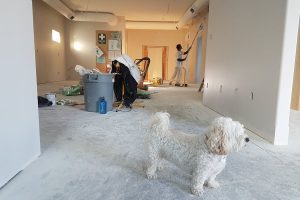Home Selling Mistakes You Should Avoid

Selling a home is a major breakthrough and it can be overwhelming when you consider all the stages involved. Fortunately, there are several common mistakes you can avoid to ensure a smooth sailing home selling process.
Read through them below to ensure you sell your house fast and at the right price.
#1. Working with the Wrong Real Estate Agent
Real estate agents can make or break your home selling experience. A good agent will guide you through all the key steps to optimize your home for sale from dealing with mortgage or cash buyers for houses. However, if you work with someone who is not good at communication, or doesn’t have your best interest at heart, you are at a risk of making a huge mistake.
To find a good real estate agent you’ll need to do a lot of research.
Ask your friends and family for referrals, read reviews, and interview a few agents before settling on one. We recommend that you choose the best agent for your job as soon as possible, rather than changing real estate mediators after your home is listed, as the longer the house stays on the market, the lower its perceived value.
#2. Setting an unrealistic price
Fair Market Value addresses how a home is priced when both the seller and buyer are reasonably knowledgeable about the property.
However, in reality, the price you set and what the market is willing to pay tend to differ. Therefore, the most important factor in determining the price of a home is what comparable homes in your locality have been sold for.
Some other secondary factors include location, market strength, demand, and housing condition. If you set the price of your home correctly, buyers and their real estate agents will surely be interested.
#3. Not Preparing Your Home for the Market
One of the challenges of listing your home is presenting your home to potential buyers. A few major or minor touch-ups can go a long way in making a favourable first impression with prospective buyers. Below we highlight a few tips on get your home ready for sale.
Tips on Preparing a Home for Sale
- Repaint walls with neutral colours
- Maintenance and repairs
- Heavy Duty Cleaning
- Boost the Curb Appeal
- Boiler Installation or Repair
- Declutter
- Depersonalise your space
#5. Listing at the wrong time of the year
The real estate market fluctuates throughout the year, with strong demand from buyers in the spring and generally less in the fall and late winter. If you have some flexibility, aim to hit the market from the end of February to mid-May. Listing at the wrong time of year can even cause a great property to stay in the market for a while due to the general lack of interest from buyers.
#6. Overcapitalising on renovations
Overcapitalizing on renovations occurs when you invest more money into home improvements than the market value those improvements add to the property. Overcapitalization often happens when you undertake extravagant or unnecessary renovations that exceed the expectations of buyers in the local market.
For instance, installing high-end fixtures or undertaking extensive structural changes may not necessarily yield a significant return on investment, especially if the neighborhood’s home prices don’t support such upgrades.
To avoid overcapitalizing, focus on cost-effective renovations that address essential maintenance issues and enhance the overall aesthetic appeal of the property without significantly inflating the asking price.
#7. Waiting to sell
Waiting to sell your home can be a costly mistake for several reasons.
Firstly, the real estate market is dynamic and can fluctuate unpredictably. While it’s tempting to wait for the “perfect” time to sell, trying to time the market perfectly is challenging and often leads to missed opportunities.
Secondly, the longer your home sits on the market, the more it can become stigmatized, leading potential buyers to wonder if there’s something wrong with it or if it’s overpriced.
Additionally, ongoing costs such as mortgage payments, utilities, and maintenance expenses continue to accumulate while your home is listed, eating into your potential profits.
Finally, external factors such as changes in interest rates, economic conditions, or shifts in buyer preferences can impact the demand for homes in your area.
By waiting too long to sell, you risk being caught off guard by these changes and potentially selling your home for less than its true value.
#8. Bad listing photos
Bad listing photos represent one of the biggest home selling mistakes because they are the first impression potential buyers have of your property.
In today’s digital age, where the majority of home buyers begin their search online, high-quality photos are essential for capturing attention and generating interest.
When listing photos are poorly lit, blurry, or fail to showcase the home’s best features, they can deter buyers from scheduling a viewing or attending an open house.
Furthermore, inadequate listing photos can lead buyers to assume that the property is not well-maintained or that there may be hidden issues, even if this is not the case.
Ultimately, bad listing photos can significantly reduce the number of inquiries and showings your home receives, prolonging its time on the market and potentially resulting in a lower sale price.
#9. Neglecting home staging
Neglecting home staging is a critical mistake when selling your home. Home staging involves arranging and decorating your home to showcase its best features and create a welcoming atmosphere for potential buyers. By neglecting this step, you risk presenting your home in a way that fails to capture buyers’ attention and fails to highlight its full potential.
Staging helps buyers envision themselves living in the space by depersonalizing it and allowing them to see its functionality and potential. When a home is not staged, cluttered, or poorly arranged, buyers may struggle to see past these distractions and may be less inclined to make an offer.
Additionally, staged homes typically photograph better, making them more appealing in online listings and attracting more buyers to schedule viewings. Studies have shown that staged homes tend to sell faster and for a higher price compared to unstaged homes.
#10. Keeping clutter
Keeping clutter during the process of selling your house is a significant mistake that can hinder your chances of a successful sale. Clutter not only makes your home appear smaller and less inviting, but it also distracts potential buyers from seeing the true potential of the space. When buyers walk into a cluttered home, they may struggle to imagine themselves living there, as clutter can make it difficult to envision their own belongings in the space.
Furthermore, clutter can give the impression that the home has not been well-maintained or cared for, which can raise concerns about the overall condition of the property. Buyers may worry that hidden maintenance issues are lurking beneath the clutter, leading them to be more cautious or skeptical during the home inspection process.
To avoid this mistake, take the time to declutter your home before listing it for sale. This means removing excess furniture, personal items, and knick-knacks, and organizing closets, cabinets, and storage areas. Consider renting a storage unit to temporarily store items that you don’t need while your home is on the market.
#11. Hiding problems
Disclose any known issues or defects with your home to potential buyers. Hiding problems can lead to legal issues and jeopardise the sale.
Buyers have the right to know about any defects or issues that may affect the value or safety of the property they are considering purchasing. By hiding problems, you not only violate this right but also risk damaging your reputation and facing potential legal action.
Additionally, hiding problems can backfire during the inspection process. Home inspectors are trained to identify hidden issues, and failing to disclose known problems can erode trust and credibility with the buyer. If significant issues are uncovered during the inspection, the buyer may demand repairs, concessions, or even back out of the deal altogether.
To avoid this mistake, it’s essential to be transparent and upfront about any known problems with the property. This includes disclosing past repairs, water damage, pest infestations, structural issues, and any other defects that may impact the buyer’s decision.
#12. Selling to unqualified buyers
Selling your house to unqualified buyers is a significant mistake that can lead to wasted time, frustration, and potentially financial losses. An unqualified buyer is someone who doesn’t have the financial means or creditworthiness to secure a mortgage loan to purchase your property.
Selling to such buyers can result in failed transactions, delayed closings, or even deals falling through entirely.
Require proof of pre-approval or pre-qualification from prospective buyers before accepting offers.
By vetting buyers and ensuring they are financially qualified, you can minimize the risk of delays, failed transactions, and legal complications, and increase the likelihood of a successful sale of your home.
#13. Ignoring necessary repairs
A lengthy list of maintenance concerns can scare away buyers and possibly decrease the worth of your home. Repairing before vacating can be expensive, but it definitely increases the chances of selling your house fast.
While it may be tempting to skip repairs to save time and money, neglecting maintenance issues can deter potential buyers and ultimately lead to a lower sale price.
Buyers are often looking for a home that is move-in ready and well-maintained. When they see visible signs of neglect or deferred maintenance, such as leaky faucets, cracked walls, or outdated appliances, they may assume that there are more serious underlying issues with the property. This can lead to buyer hesitancy, decreased interest, and even lower offers.
Furthermore, failing to address necessary repairs can result in a failed home inspection, which can delay or derail the sale altogether. Buyers typically hire a home inspector to assess the condition of the property before finalizing the purchase. If the inspection uncovers significant issues that were not disclosed or addressed, buyers may walk away from the deal or renegotiate the terms of the sale.
#14. Being home for showings
When it comes to selling your house, being present during showings can actually do more harm than good. Sure, it’s natural to want to showcase your home’s best features and answer any questions potential buyers may have, but in reality, your presence might make them feel uncomfortable or rushed. Picture this: you’re a buyer, stepping into a potential new home, and the seller is hovering around, watching your every move. It’s hard to relax and truly take in the space when you feel like you’re being scrutinized. Plus, buyers may not feel comfortable asking their agent questions or expressing their honest opinions about the property with you there.
Leaving the house during showings gives buyers the freedom to explore at their own pace and envision themselves living in the space without feeling pressured. They can open closets, peek into cabinets, and discuss their thoughts freely with their agent. It’s all about creating a relaxed and welcoming atmosphere that encourages buyers to imagine themselves calling your house their home.
Final Thoughts
By avoiding these common home selling mistakes, you can increase your chances of a successful and profitable sale. Working with a knowledgeable real estate agent and being proactive throughout the selling process will help you achieve your goals with confidence.
Faqs:
What is the procedure to sell property?
Prepare your home, determine the listing price, market the property, negotiate offers, and complete the closing process.
What happens when you sell a house with a mortgage in Canada?
Proceeds from the sale pay off the mortgage balance. Any surplus is equity; any shortfall may require additional payment. Review mortgage terms and consult with the lender.
How do you sell a property to a customer?
Market the property, negotiate terms, sign a purchase agreement, transfer ownership, and complete necessary paperwork.
What documents are needed to sell a house?
Deed, Property Disclosure Statement, Purchase Agreement, Title Report, and Closing Statement.
What is the tax on selling property?
Consult with a tax professional. In Canada, capital gains tax may apply on profits from property sales, calculated based on sale price minus purchase price, adjusted for deductions.






